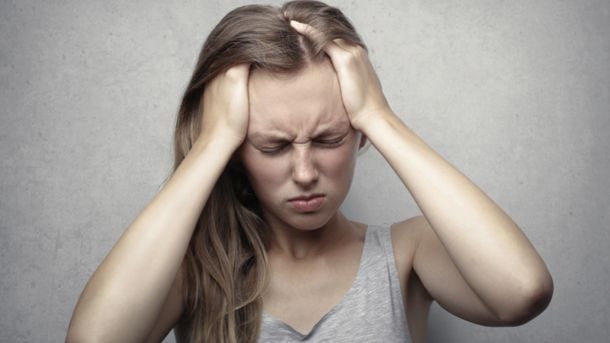Sleep Apnea Cause Bad Breath, Bad Dreams, and Bad Headaches?
If you consistently wake up with a headache, with the lingering memory of really bad dreams, or with a dry mouth and bad breath, it’s time to discuss the possibility of sleep apnea with your physician.
Sleep Apnea Can Cause Bad Breath
“Morning Breath” is a term to describe dry mouth as saliva production decreases while you sleep. Saliva kills bacteria in the mouth, and without saliva, bacteria causes halitosis and morning breath.
A little morning breath is natural due to diminishing saliva production. However for those with sleep apnea, a sleep disorder that results from the airway collapsing which results in restrictive breathing, bad morning breath can be the result of the body compensating for these apnea events during sleep. During an apnea event, people tend to either clench their jaw (causing bruxism - grinding or clenching the teeth). People can also open their mouth to gasp for air. Most people with sleep apnea tend to snore, and may not even be aware that these adrenaline-fueled flight or fight responses are even taking place. All these reactions have a tendency to dry out the mouth, and can in turn cause bad breath upon awakening.
Sleep Apnea Can Cause Bad Dreams
Someone with sleep apnea can experience an episode many times an hour, which results in frequent sleep interruptions. When an apnea occurs during REM sleep (the dream phase of sleep), it can interrupt the dream, enhancing dream recall. Additionally, the actual dream subject matter can be influenced by an apnea because apnea causes a dramatic decrease in blood oxygen levels. Lower blood oxygen levels can also have a relation to nightmares. Several studies substantiate the link between bad dreams and untreated sleep apnea.
You should always discuss frequent nightmares with your physician because there are also many other conditions that cause nightmares.
Headaches Caused by Sleep Apnea?
One of the primary indication of untreated sleep apnea is a morning headache that usually lasts around half an hour after waking. More than half of all OSA patients experienced morning headaches before their diagnosis of OSA.
Sleep disorders (not just OSA) have been linked to many types of headaches including migraines and chronic tension headaches. Studies have shown that morning headaches may be related to lower levels of oxygen saturation and the dilatation of blood vessels, which decreases blood pressure. Additionally, tightly clenched jaws that result from the body trying to keep the airway open, can also cause headaches. More research is necessary to determine the exact reasons for sleep related headaches. However, if you frequently wake up with a migraine or headache, you should discuss this with your physician because it could be an indicator of OSA or another sleep disorder.
Don’t Ignore These Signs of Sleep Apnea
Bad breath, bad dreams, bad headaches, bruxism, and snoring are all indications of the possibility of obstructive sleep apnea, and they need attention. Sleep apnea is a serious and chronic health problem. We’ve written about the symptoms of sleep apnea in blog. The best course of action is to your doctor about sleep apnea. The gold standard for effectively treating sleep apnea does not involve surgery or medication. A CPAP machine is highly effective at treating sleep apnea, and bad breath, bad dreams, bad headaches, and many other symptoms can immediately cease as soon as CPAP therapy is successful.
Chris Vasta is the president of The CPAP Shop and an expert in sleep and respiratory therapy. He often provides insights on product design and functionality on various manufacturers’ prototypes and is frequently tapped to provide reviews on new releases.




